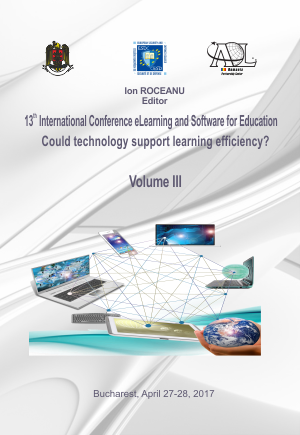DESIGNING A SCALABLE TECHNOLOGY HUB FOR RESEARCHERS
DESIGNING A SCALABLE TECHNOLOGY HUB FOR RESEARCHERS
Author(s): Ionuţ Cristian Paraschiv, Mihai Dascălu, Cosmin Banica, Ştefan Trăuşan-MatuContributor(s): Ion ROCEANU (Editor), Ştefan Trăuşan-Matu (Editor), Cristina Anca COLIBABA (Editor), Mirela Blaga (Editor), Daniel Beligan (Editor), Calin Corciovă (Editor), Adrian Addăscăliţei (Editor), Mireille Rădoi (Editor), Valerica Grigore (Editor), Monica Stănescu (Editor), Ioan Mihai COSMIN (Editor)
Subject(s): Social Sciences
Published by: Carol I National Defence University Publishing House
Keywords: technology hub; semantic recommendation; scalable and distributed infrastructure; semantic similarity.
Summary/Abstract: Nowadays, every researcher and postgraduate student is faced with the problem of information overflow in his daily endeavours. Concurrently, it becomes more and more difficult for someone interested in certain topics to find the relevant and trending articles and authors from a field, and to visualize the underlying connections within a domain. This paper introduces the architecture and describes a technology-centered hub aimed at bringing together researchers and the industry for creating new joint project proposals. Thus, Hub-Tech aggregates the newest publications from multiple domains and is designed to offer an easy to use, rich interface to search and find relevant articles. The provided semantic recommendations are suited for automatically generating the state-of-the-art for a new project proposal, as well as to contact additional researchers for a potential collaboration. The portal also contains sections where researchers can define templates for research proposals while exploring the structure of the domain represented as multi-layered 2-mode graphs in which authors and articles are correspondingly clustered. Our system relies on Latent Semantic Analysis, Latent Dirichlet Allocation and word distances in lexicalized ontologies to annotate documents and compute semantic relatedness, techniques that require complex computational infrastructures and scalability. In addition, the replicated worker paradigm will be used to achieve concurrent processing alongside the provided enterprise search engine (i.e., Apache Solr) in order to create a solid and scalable infrastructure. By combining relational and non-relational databases, Hub-Tech will be able to offer responses with minimal latencies and, contrary to traditional indexing tools, will offer semantically relevant results for richer input queries.
Journal: Conference proceedings of »eLearning and Software for Education« (eLSE)
- Issue Year: 13/2017
- Issue No: 01
- Page Range: 13-18
- Page Count: 6
- Language: English

